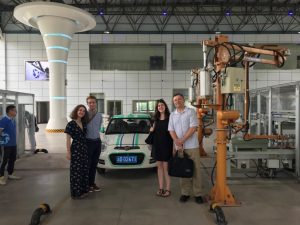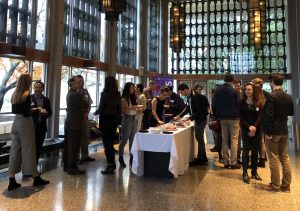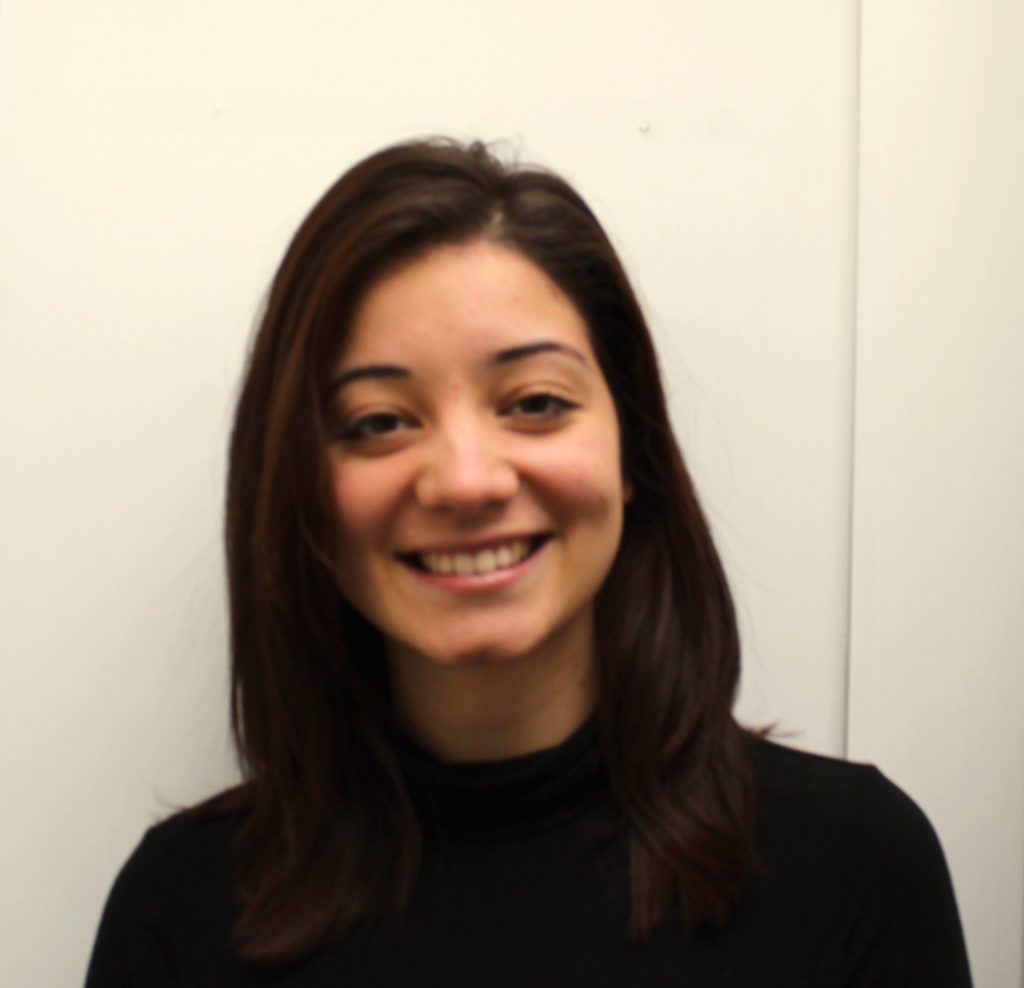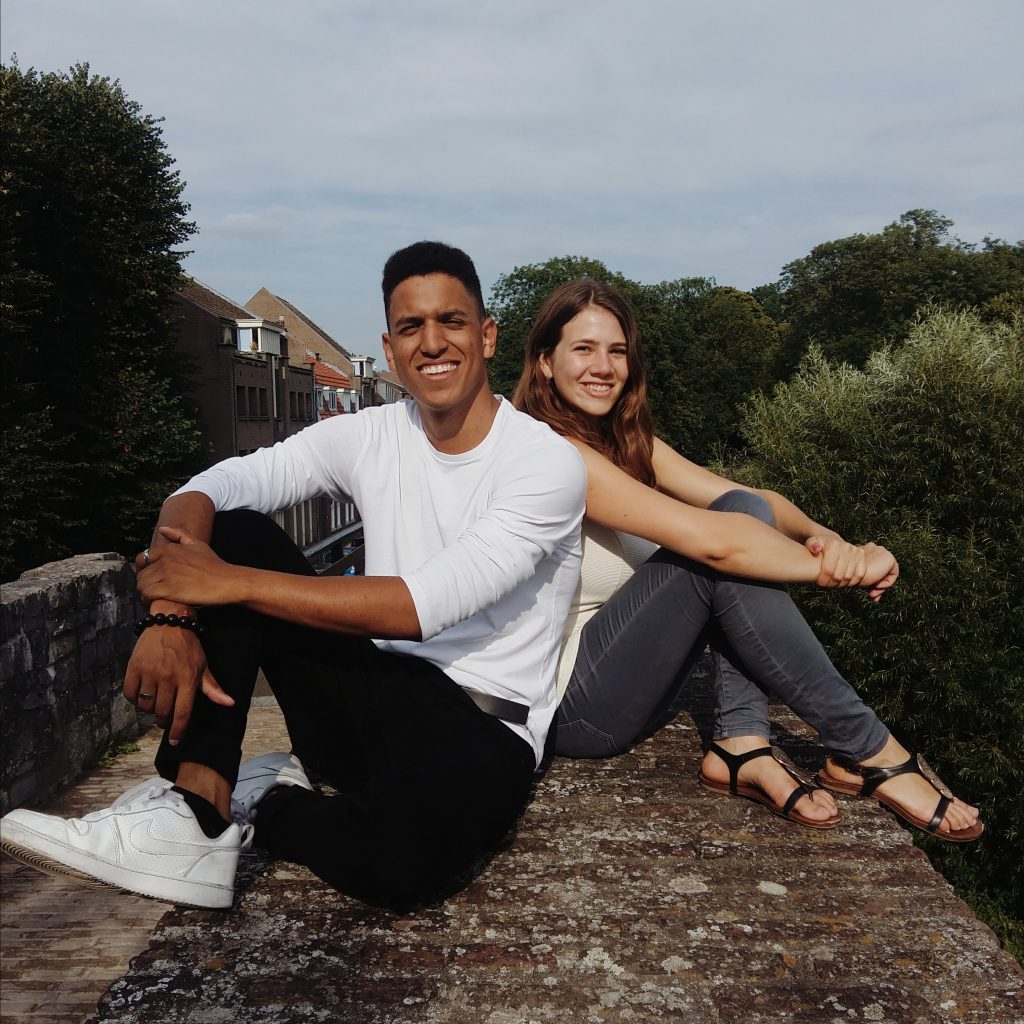Last May, three students of the Dual Degree Program participated in a Global Seminar, a UBC course taught by a UBC professor abroad. This Global Seminar brought the three students to Chongqing, China, to participate in the first UBC-SWUPL (Southwest University of Political Science and Law) exchange. Zachary Pascaud recounts his exciting month-long exchange in Chongqing.

Pauline, Zach, Moira & Yves at the Lifan Electric Vehicle plant in Chongqing
The fact that most people in the West have never heard of the Chinese city of Chongqing, which on a technicality holds the title of the most populous city in the world, speaks volumes about our understanding of the Asian superpower. After having spent three days in smoggy Beijing, I landed in the massive, futuristic Chongqing Jiangbei International Airport where I was greeted by two extremely kind (and just a little bit intimidated) students who insisted on carrying my bags although they were about half my size. One of them, who went by the English name Theresa, had been assigned my ‘buddy’ for the trip and would routinely take me out for food and check in on me throughout the trip. Each of the 20 UBC students received a similarly warm and attentionate greeting from the SWUPL students in our program, and most of us had never been exposed to such hospitality – least of all in a university setting.
Our schedules in Chongqing were absolutely packed. On weekdays, we would wake up at 8, have breakfast, and head towards our assigned classroom for a 9 a.m. lecture. Each lecture was delivered by a different SWUPL professor (except those delivered by Yves Tiberghien, the program’s organiser on the UBC side and a Sciences Po alumnus) on topics ranging from Urban Planning in Chongqing to Chinese environmental protection policy. The classroom was filled with equal parts UBC and SWUPL students, and students from both schools were strongly encouraged to participate. Prior to our departure, we had been warned of a line in the sand regarding what could and could not be discussed in class regarding certain political and historical topics. To be clear – that line did exist, but to our surprise, our SWUPL students generally seemed more willing to toe it than us (likely because they had a better understanding of exactly which topics were off-limits).
Chongqing is a unique administrative division
When I say that Chongqing is only technically the world’s biggest city, it’s because Chongqing isn’t really a city. The Chongqing metropolitan area, with its area of 82 000 km2, is roughly the size of Austria. The urban area of Chongqing (known as central Chongqing) hosts about 9 million people but represents only a fraction of the municipality. There is a good reason behind Chongqing’s special administrative status – it is one of four municipalities under the direct control of the central government, and the only one away from the coast. The municipality was placed under direct government control in 1997 as part of an effort to develop the country’s SouthWest region, which for a long time has lagged behind the East. Now a major manufacturing center and transportation hub, Chongqing is a testament of the success of China’s decentralization policy.
Technology is omnipresent
Chinese cities such as Chongqing are virtually cash free. Those that have visited China within the past several years are well aware of this but for newcomers it remains a shock to see an elderly woman paying a street vendor for her meal by scanning a QR code with her phone. In fact, most of the students I spoke to hadn’t used cash in years and didn’t even carry a wallet. Most of China’s digitally literate population depends on platforms such as WeChat, a sort of mega-app with almost 1 billion monthly users which is probably best described as a combination of facebook, venmo, whatsapp and instagram. Technological progress has already disrupted the Chinese workforce – many restaurants and coffee shops have entirely replaced waiters and cashiers with digital kiosks. Unemployment, however, remains low: the Chinese government expends significant resources in its Public Employment Service System and has made curbing the impact of technological unemployment a priority.
The various ways in which technology was used went from the very practical to the extravagant. Every evening a dozen of massive buildings on the bank of the Yangtze river in Chongqing’s massive downtown area would light up as one, forming an animated canvas on which a handful of exotic fish could be seen swimming around. Sometimes things just got bizarre, like when we were escorted into a private karaoke room by a very slow, human sized robot on wheels.
There are millions of things that I could add, but in the interest of brevity I’ll finish by thanking UBC, SWUPL and Sciences Po, three schools without which this incredible experience would never have been possible.
Going to Chongqing is one of the many Global Seminar options from Go Global. Check out the Go Global website for an up-to-date list of their Global Seminar offerings, and to learn more about their other programs, including exchange and research abroad opportunities.
 Faculty of Art
Faculty of Art

